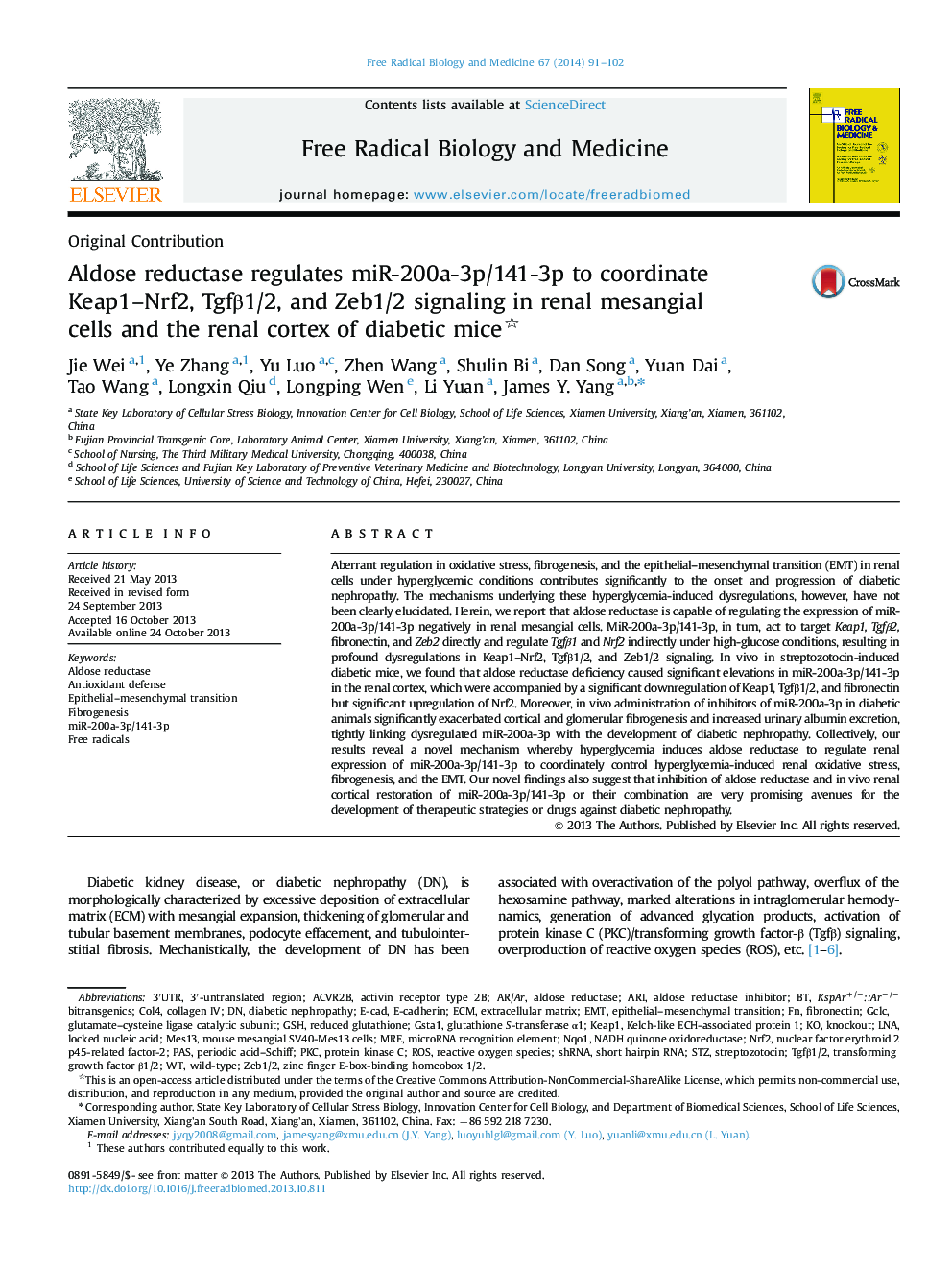| Article ID | Journal | Published Year | Pages | File Type |
|---|---|---|---|---|
| 8270854 | Free Radical Biology and Medicine | 2014 | 12 Pages |
Abstract
Aberrant regulation in oxidative stress, fibrogenesis, and the epithelial-mesenchymal transition (EMT) in renal cells under hyperglycemic conditions contributes significantly to the onset and progression of diabetic nephropathy. The mechanisms underlying these hyperglycemia-induced dysregulations, however, have not been clearly elucidated. Herein, we report that aldose reductase is capable of regulating the expression of miR-200a-3p/141-3p negatively in renal mesangial cells. MiR-200a-3p/141-3p, in turn, act to target Keap1, Tgfβ2, fibronectin, and Zeb2 directly and regulate Tgfβ1 and Nrf2 indirectly under high-glucose conditions, resulting in profound dysregulations in Keap1-Nrf2, Tgfβ1/2, and Zeb1/2 signaling. In vivo in streptozotocin-induced diabetic mice, we found that aldose reductase deficiency caused significant elevations in miR-200a-3p/141-3p in the renal cortex, which were accompanied by a significant downregulation of Keap1, Tgfβ1/2, and fibronectin but significant upregulation of Nrf2. Moreover, in vivo administration of inhibitors of miR-200a-3p in diabetic animals significantly exacerbated cortical and glomerular fibrogenesis and increased urinary albumin excretion, tightly linking dysregulated miR-200a-3p with the development of diabetic nephropathy. Collectively, our results reveal a novel mechanism whereby hyperglycemia induces aldose reductase to regulate renal expression of miR-200a-3p/141-3p to coordinately control hyperglycemia-induced renal oxidative stress, fibrogenesis, and the EMT. Our novel findings also suggest that inhibition of aldose reductase and in vivo renal cortical restoration of miR-200a-3p/141-3p or their combination are very promising avenues for the development of therapeutic strategies or drugs against diabetic nephropathy.
Keywords
GSHSTZLNAPKCARIZEB1/2NQO1shRNANrf2GCLCMREACVR2BmicroRNA recognition elementGSTA1ECM3′-untranslated region3′UTRkeap1E-cadE-cadherinAr/Arshort hairpin RNAROSAldose reductasestreptozotocinperiodic acid–SchiffLocked Nucleic AcidEMTAntioxidant defenseFree radicalsFibronectinFibrogenesisExtracellular matrixAldose reductase inhibitorknockoutDiabetic nephropathyPASwild-typeKelch-like ECH-associated protein 1Protein kinase Creduced glutathioneCollagen IVGlutamate–cysteine ligase catalytic subunitEpithelial–mesenchymal transitionReactive oxygen species
Related Topics
Life Sciences
Biochemistry, Genetics and Molecular Biology
Ageing
Authors
Jie Wei, Ye Zhang, Yu Luo, Zhen Wang, Shulin Bi, Dan Song, Yuan Dai, Tao Wang, Longxin Qiu, Longping Wen, Li Yuan, James Y. Yang,
